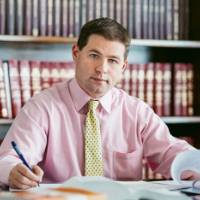 East Orange Criminal Lawyers, New Jersey
East Orange Criminal Lawyers, New Jersey
Sponsored Law Firm
-
 x
x

Click For More Info:
-
Francis P. Crotty Esq.
103 Sterling Dr Franklin Lakes, NJ 07417» view mapCriminal Defense Experience You Can Trust
Let Francis P. Crotty Esq. handle all of your criminal defense legal matters today.
201-294-6462
Sponsored Lawyers
1-10 of 27 matches
Traffic, DUI-DWI, Criminal
Joseph Donatiello was born and raised in Northern New Jersey and received his J.D. in 2009 from Rutgers School of Law in Newark. Following law school, he served as the judicial law clerk for the Honorable Joseph V. Isabella, J.S.C., in the Criminal Division of the Hudson County Superior Court. At the completion of his term as a judicial law clerk, Mr. Donatiello began a career in public service by working as an Assistant District Attorney with the Bronx County District Attorney's Office. During his time at the Bronx District Attorney's Office, Mr. Donatiello was assigned to the Criminal Court Bureau, where he gained invaluable experience with a variety of cases including Driving While Intoxicated, Assault, Harassment, Menacing, Driving While Suspended, Theft of Services, and Possession of Weapons and Drugs. He was responsible for prosecuting these cases from commencement through trial. After leaving the Bronx District Attorney’s Office, Mr. Donatiello returned to New Jersey and, in February 2014, he opened up his own firm in Nutley, New Jersey. Since then, Mr. Donatiello has frequently appeared in court representing defendants charged with criminal and traffic offenses in New Jersey Superior Court and Municipal Court, New Jersey Motor Vehicle Commission Suspension Hearings, as well as in New York Supreme and Criminal Court. The clients he represents have been charged with a variety of offenses including Possession of Controlled Dangerous Substances, Driving While Intoxicated, Leaving the Scene of an Accident, Assault, Shoplifting, Criminal Mischief, Theft by Deception, Speeding, Driving While Suspended, and many other motor vehicle offenses. Mr. Donatiello is currently admitted to practice in New Jersey, New York and the United States District Court for the District of New Jersey. In February 2022, Mr. Donatiello was appointed the Public Defender for the Township of Nutley.
(more)


 Francis Crotty Franklin Lakes, NJ
Francis Crotty Franklin Lakes, NJ Practice AreasExpertise
Practice AreasExpertise

